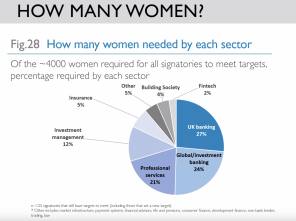

People are the beating heart of the investment industry, perhaps more so than any other industry. The ideas they generate drive innovation, deliver outcomes, and keep the industry relevant.
However it knows little about its people, as hiring managers focus more on polish than potential, and risk missing out on the best talent. Genuine diversity of thought suffers as a result.
Matthew Syed, author of Rebel Ideas, distinguishes between linear and complex problems.
In the Diversity Project’s "Potential Over Polish" speaker series, Syed explained that linear problems are often simple ones where diversity is not necessarily optimal.
Describing the challenge of a 4x100m relay race he imagined cloning Usain Bolt (the fastest sprinter of all time) to have him on each leg of the relay.
That would give you the best outcome pretty much every time. Diversity would be a hindrance.
However, the investment industry rarely deals with linear problems. Most often it contends with highly complex challenges that require a more nuanced approach that brings together people with complementary skills and diverse – often opposing – viewpoints.
Benefitting from diversity
We have known about the benefits of diversification when investing since the 1950s but are only now starting to appreciate the power of diversity in team settings.
Specifically, the importance of looking beyond optical diversity in achieving the genuine cognitive diversity needed to deliver for our clients and continue to innovate. That includes explicitly considering less visible diversity traits like socio-economic and neuro-diversity.
The lack of socio-economic diversity in the investment and savings industry is stark, particularly at senior levels.
Research from the Bridge Group showed that nine in 10 senior roles in financial services are held by people from higher socio-economic backgrounds. It also found that employees from lower socio-economic backgrounds take 25 per cent longer to progress, despite no evidence of poorer performance.
It is perhaps no surprise then that last year’s Social Mobility Foundation's employer index saw only one investment-related company in its top 20. Instead, the list was dominated by law and professional services firms. Our industry clearly has some catching up to do if we want to compete for top talent.
Where to next?
Thankfully we are now starting to see some progress. Some investment firms have begun to broaden the work they have been doing on issues like ethnic and gender diversity to encompass socio-economic background.
Examples include data collection, contextual recruitment practices, and reverse mentoring.
The City of London Corporation’s socio-economic diversity taskforce has been looking at the progression of those from lower socio-economic backgrounds within financial services and has launched Progress Together, a membership body, to focus on achieving greater levels of socio-economic diversity at senior levels.
Closer to home at The Diversity Project, a membership body of more than 100 investment and savings firms, we have set explicit socio-economic goals for our member firms and are committed to tracking progress against achieving them.
Our "Potential Over Polish" speaker series launched in September, which features high-profile experts discussing the great mis-pricing of talent happening right in front of our eyes.
There is still much to do, but it is pleasing to see so much positive momentum building.
David Aujla is a deputy fund manager at Invesco and co-lead on the Diversity Project




